The holidays are often portrayed as a time of joy and magic, which is full of love, laughter and togetherness. However, for many people this comes nowhere near the truth. Stress around the holidays can be seriously debilitating even when you are surrounded by shiny decorations and happy faces.
As the end of the year approaches, we may feel overwhelmed and anxious by the pressure to create the best holiday experience underpinned by additional social commitments and money limitations that can seriously affect our mental well-being.
Thus, let us look at various aspects of holiday stress and find out some simple but effective techniques to manage it and make our lives better.
Stress and the Holidays: What is Holiday Stress?
Although the holiday season is typically associated with celebration and happiness, it can also cause a distinctive form of stress, known as holiday stress. It implies elevated levels of anxiety, tension, and nervousness that someone experiences during this time of year.
Stress around the holidays is associated with different emotional, psychological or physical responses elicited by demands and expectations related to holiday season. It can be triggered by several factors including –
- Societal expectations
- Financial strains
- Limited time frames
- Family interactions
- Individual expectations
Stress and the holidays lead to multiple obligations and pressures. These pressures when combined change our sense of equilibrium making us feel overwhelmed with emotions, leading to stress during the holidays.
Related: 9 Tips For Coping With Holiday Stress And Depression
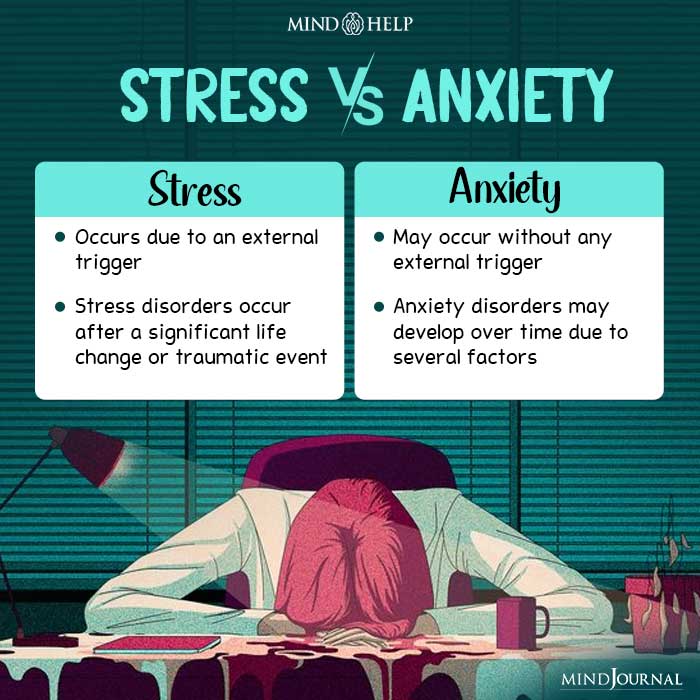
Signs of Stress Around the Holidays
Being aware of signs indicating that one may be stressed during holidays helps one handle it effectively. Some common indicators include the following:
1. Increased Anxiety
A person feels always on edge with racing thoughts or general uneasiness. Anxiety levels increase as they are unable to meet several obligations or are afraid of disappointing others, or even being present in some events.
2. Fatigue and Exhaustion
During the holiday season, there is often little time for rest and relaxation because it typically involves a flurry of activities and a packed schedule. Consequently, individuals may be physically and mentally exhausted.
Feeling tired all the time, not having enough energy, and difficulty concentrating are some signs of holiday stress.
3. Sleep Disturbances
Stress during the holidays can affect sleep patterns making it hard to fall asleep or stay asleep throughout the night. It might be challenging to achieve restful sleep due to racing thoughts, worries or anticipatory anxiety about tasks related to holidays.
4. Changes in Eating Habits
Our appetite and eating patterns are disrupted by stress. While some people may lose their appetite others resort to comfort or binge eating as coping mechanisms.
Both extremes can further contribute to feelings of stress and guilt. This is one of the basic signs of stress over the holidays.
5. Social Withdrawal
The feeling of being overwhelmed with social obligations and the pressure to socialize can lead one into wanting to withdraw from other people’s presence completely. Not attending parties or refusing invitations can indicate that one has holiday stress.
6. Heightened Perfectionism
During the Christmas season the desire for perfection becomes much greater even in small details. Decorations should be flawless, meals should be perfect, gifts must meet up everyone’s expectations, if possible. This constant race for perfection only contributes towards a higher level of stress and anxiety among most people.
7. Irritability and Mood Swings
One cause of the increased stress around the holidays is an increased likelihood to get irritable, have mood swings or a shorter fuse. People may feel small irritations more strongly and find that they have more intense reactions than usual to minor inconveniences or conflicts.
8. Feeling Overwhelmed
Feeling overwhelmed, or unable to handle the demands of this holiday season are some of the symptoms to know. The sheer volume of tasks, expectations and obligations can make someone feel strained and overwhelmed and unable to find a sense of balance.
9. Physical Symptoms
Headaches, muscle tension, stomachaches or frequent illnesses as a result of low immunity are some physical symptoms experienced due to holiday stress. These symptoms are usually reactions by the body during chronic stress over the holidays.
Being able to identify these signs can help people manage and reduce stress during the holidays. This is why you should be very careful about your own well-being and that of others during these days of celebrating, stress and the holidays are closely linked.
Related: Hate Christmas: 8 Things I Hate About Christmas and Reason Why
Causes of Stress Around the Holidays
So what exactly causes stress over the holidays? The festive season is a time of pleasure and enjoyment as well as a source of various stresses that leads to increased anxiety levels and tension among individuals.
To effectively manage and relieve it, one needs to understand different causes of holiday stress. These include:
1. Unrealistic Expectations
One major cause of holiday stress or depression is the anxiety due to societal demands coupled with personal expectations. Society portrays holidays as perfect with flawless decorations, generous gifts or harmony amongst families during such seasons.
This makes some people feel inadequate since they cannot meet such idealized standards causing excessive strain on their mental health. Additionally, individuals set their own expectations, striving for the perfect holiday experience, which can be overwhelming and unrealistic.
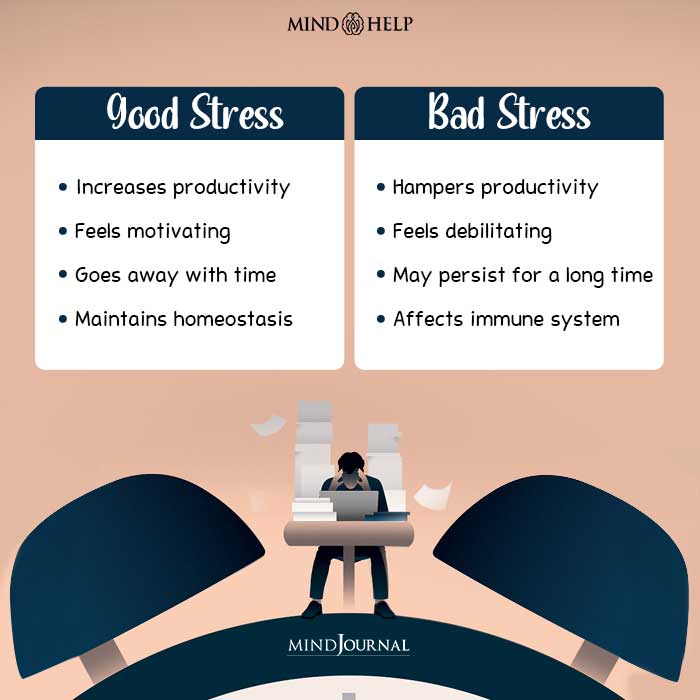
2. Financial Stress
Another major factor causing stress during Christmas is economic hardship associated with it. The need to give thoughtful presents sometimes forces people into living beyond their means; hence, resulting in debt problems and financial instability.
Because of this pressure many people want to buy expensive gifts they can’t afford; go on long trips only accessible by plane or organize lavish parties when they lack enough money for such purposes. Consequently, social expectations can lead them into this financial burden.
3. Time Limitations
Increased social activities, family visits and additional responsibilities are typical for the holiday season. However, combining work, family obligations and preparations can be quite difficult; thus, many people complain that they feel overburdened and stretched thin during this period.
This is because there is so much pressure to beat deadlines, plan for events and finish shopping which eventually brings about time shortage resulting in stress levels rising.
4. Family Dynamics
Although holidays are for bringing people together, they put existing family problems in the limelight. Some of these gatherings result in severe stress, unresolved arguments or issues and poor relationships. This is a demanding task that saps one’s emotions making someone feel stressed.
5. Emotional Triggers
During the holiday season, people go through a wide range of feelings. For those who have experienced loss or significant life changes, the holiday season can be a painful reminder of what is missing. These emotions are usually intensified with high levels of grief, loneliness and nostalgia.
6. Social Obligations
During this festive season, obligations arise on all corners including parties, dinners and social events. While it’s enjoyable to attend these activities they may also cause social anxiety or pressure to make them memorable.
The fear of being seen as unhappy and uninterested, coupled with the fear of judgment or comparison, can contribute to stress.
7. Travel and Logistics
There are often logistical challenges and disruptions related to travel during the holiday period. Long trips, flight delays, heavy traffic and crowded airports can create added stress.
These causes of stress and the holidays must be identified so that people can handle them before they become overwhelming.
Related: Feeling Depressed After the Holidays? 5 Reasons Why and How to Fix It
Dealing with Stress Around the Holidays
The holiday season is usually a chaotic period with numerous engagements. Amid all this, it is important to find some solitude and relaxation. Falling back into reading, taking walks or going about mindfulness is quite effective in balancing our lives as well as reducing stress.
Here are some helpful strategies on how to cope with stress over the holidays healthily and positively:
1. Setting boundaries
During the period of celebrations, social expectations often squeeze us too thin leaving us overwhelmed. This is why learning to say no and setting clear boundaries is necessary for our mental and emotional well-being.
Prioritize amongst the events and gatherings that truly matter to you making it easier for you to say no when needed.
2. Quality over quantity
Socializing and spending time with loved ones tends to be the main focus during Christmas celebrations. However, we need to remember that it’s not about how many times but rather how well we interact with them.
Concentrate on having deep connections which are meaningful rather than stretching yourself across many activities to avoid stress during the holidays.
3. Accepting imperfections
Having everything perfect in this festive season can be so stressful. Instead, appreciate flaws and let go of unrealistic expectations.
To deal with stress around the holidays, one should remember that holidays are defined by shared moments and memories made not by perfect decorations or grand arrangements of meals but by genuine connections.
4. Managing Time
During the holiday season, it is important to effectively manage time. Create a schedule and prioritize tasks by breaking them down into manageable chunks.
Delegate responsibilities when necessary and don’t be afraid to ask for help. Remember you do not have to do it all by yourself.
5. Healthy Habits
It is crucial to pay attention to self-care and maintain healthy habits amidst all this hustle and bustle. Allow for regular exercises, nourishing meals and good sleep. Do not overindulge in unhealthy foods or drink a lot of alcohol because they increase stress levels.
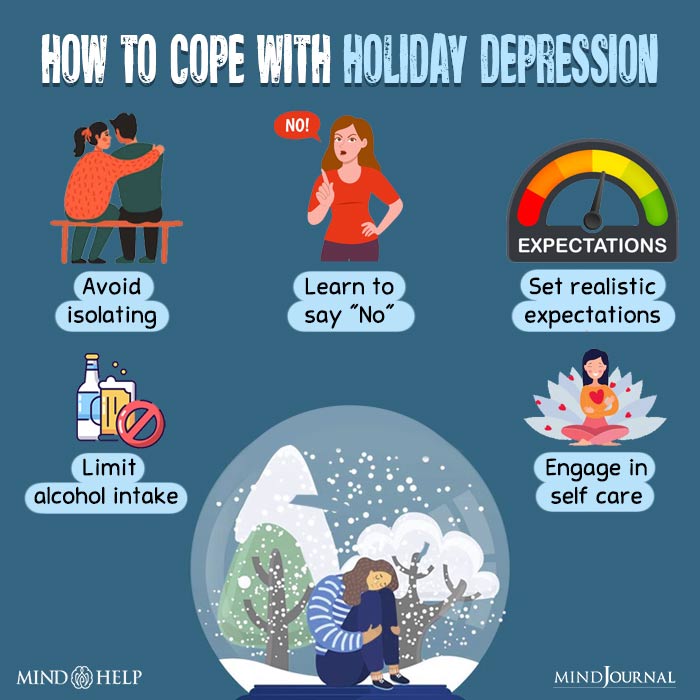
6. Asking for Help
Always remember that you are not the only one going through holiday stress. Talk with your friends, family members or join support groups where you can get someone who listens as well as helps out.
Sometimes, simply sharing these feelings can bring great relief and change of perspective.
Maintaining focus on things such as gratitude, meaningful connections and self-reflection during the holidays will enable one to overcome difficulties associated with yuletide without losing happiness in the process. We should remember that love, unity and self-care should guide our choices during this period.
Related: How To Cope With Anxiety And Depression During Christmas: 14 Ways To Bring Some Cheer
Takeaway
Despite the fact that stress around the holidays may seem like something we cannot avoid, it is something we can learn how to manage and lessen its effects on us.
With an understanding of what leads up to it, personal care, building stronger relationships, and practical techniques employed during such times make us navigate through more easily creating some calm moments between chaos.
So, let’s place our focus on ourselves during these festive seasons aiming at achieving happiness, love and thankfulness; hence, making things easier for us now and forevermore, especially during these holidays.
Frequently Asked Questions (FAQs):
What is Holiday Stress?
Holiday stress is heightened anxiety levels associated with the festive season which arises due to social obligations like gift giving as well as expectations from different people.
Why am I stressed at Christmas?
Social expectations, family dynamics, financial pressures etc can lead to holiday stress resulting in a desire for a perfect celebration.
How do I stop worrying about Christmas?
Minimize holiday anxiety by setting realistic goals; taking care of yourself physically; sharing chores among others and focusing on the meaning and not the perfection.
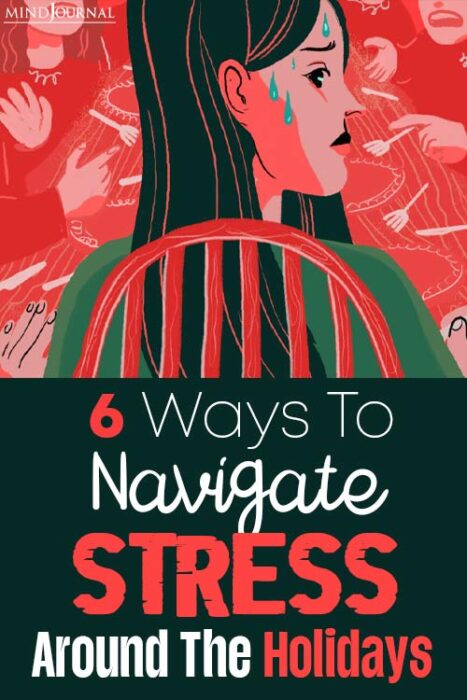
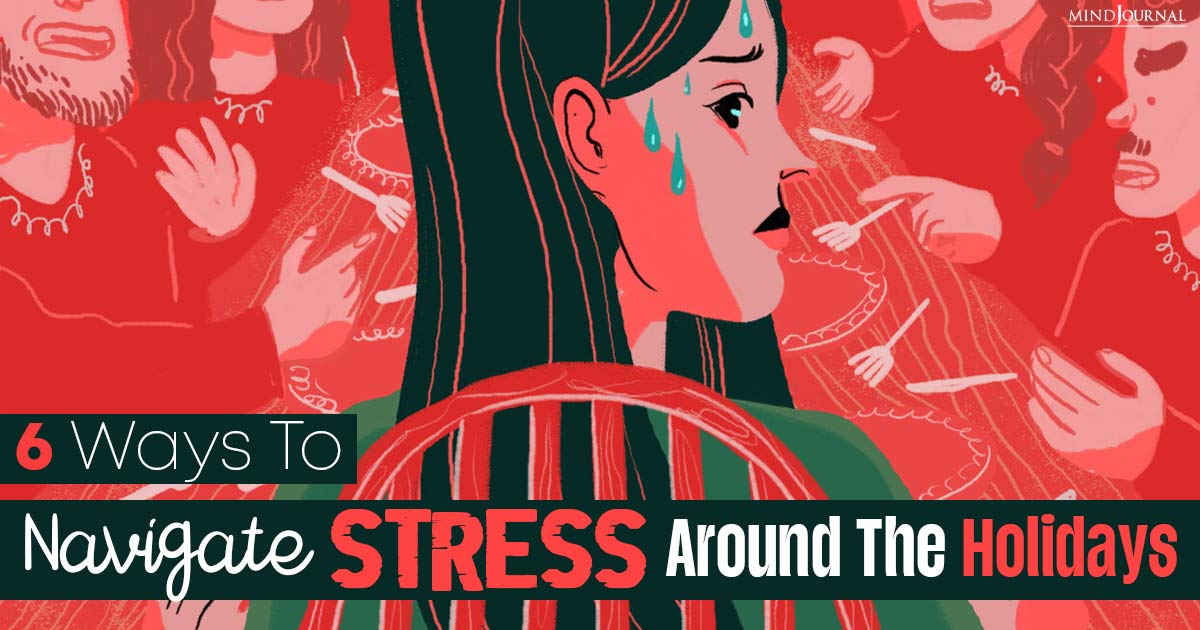

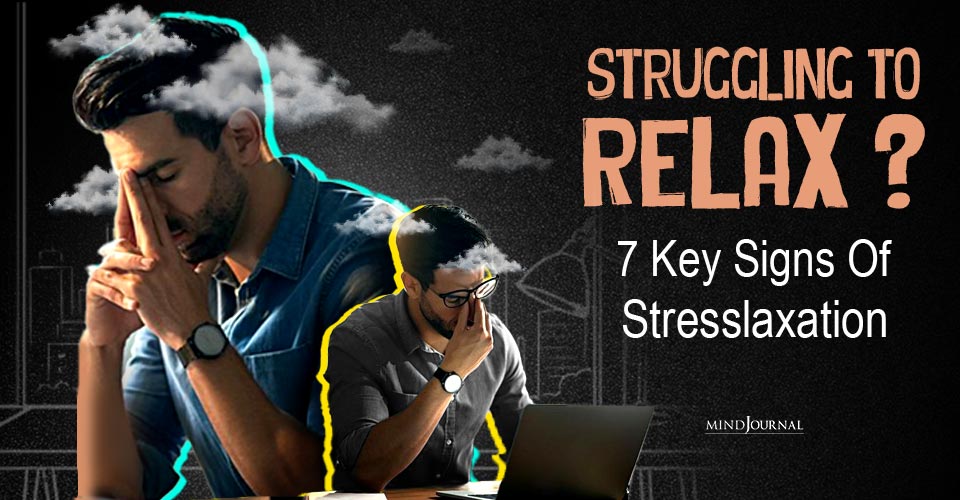

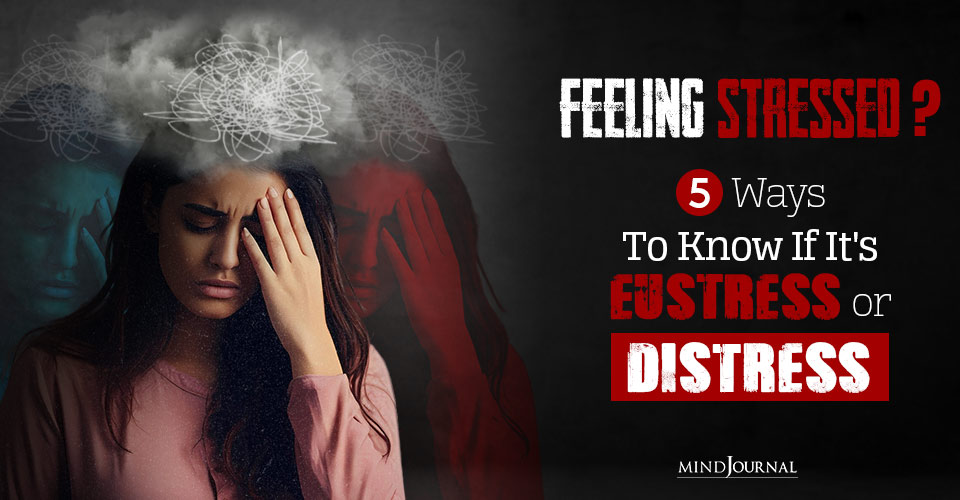
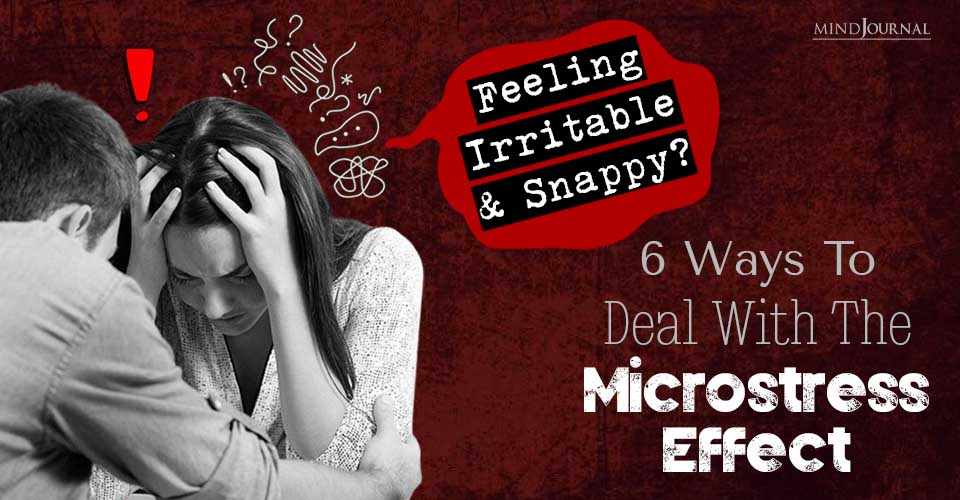


Leave a Reply
You must be logged in to post a comment.